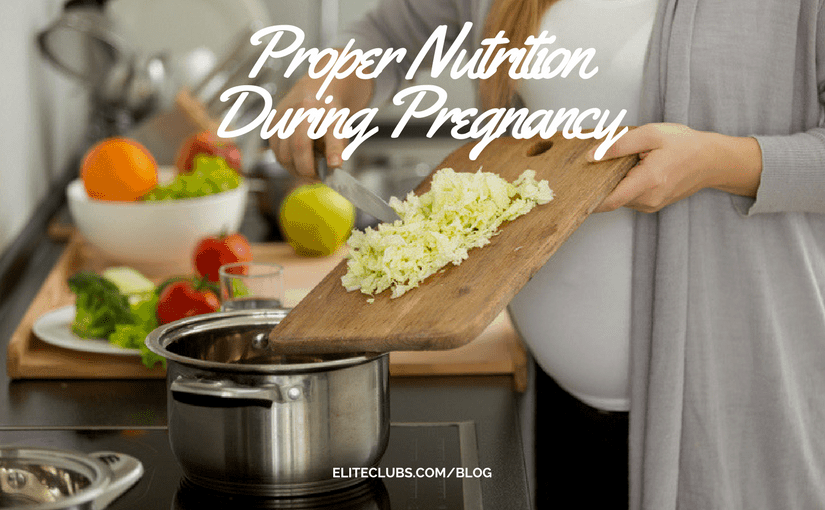
We all know that women’s bodies change during pregnancy, but how exactly should nutrition change during pregnancy? There are specific nutritional requirements for energy intake, protein, fiber, vitamins and minerals that differ during pregnancy. Keep reading for more information on proper nutrition during pregnancy.
Caloric Intake During Pregnancy
During the first trimester, overall caloric intake is the same as for the nonpregnant female. Calorie needs increase by 340-360 calories per day during the second trimester and by another 112 calories per day in the third trimester.
Protein Needs During Pregnancy
For the first half of the pregnancy, protein needs are the same as for the nonpregnant female. This requirement is 0.8 grams per kilogram of body weight per day (g/kg/day). Protein needs increase in the second half of pregnancy to 1.1 g/kg/day.
Fiber Helps During Pregnancy
Getting the proper amount of fiber every day will aid in managing the constipation that often accompanies pregnancy. The daily recommended amount of fiber during pregnancy is 28 grams per day. This can be achieved through the daily consumption of whole grain breads and cereals, leafy green and yellow vegetables, and fresh and dried fruits.
Vitamin & Mineral Recommendations for Pregnancy
Most vitamin and mineral recommendations increase approximately 15% from nonpregnant values. The most important vitamins and minerals during pregnancy are folic acid (folate), vitamins B6 and B12, Vitamin D, calcium, and iron.
Folic Acid (Folate)
The recommended daily value for folic acid intake during pregnancy is 600 micrograms per day. This must come from either folic acid supplementation (such as a prenatal vitamin) or foods that have been fortified with folic acid such as cereals, pastas and bread. Folate can also be found naturally in foods such as legumes, green leafy vegetables and citrus fruits.
Vitamins B6 and B12
Meat, fish, poultry and dairy products are great natural sources of Vitamins B6 and B12, though both are routinely found in prenatal vitamins in sufficient amounts.
Vitamin D
Vitamin D is another important vitamin during pregnancy. Supplementation of Vitamin D up to 600 International Units per day (IUs/day) is encouraged. Most prenatal vitamins will include Vitamin D, be sure to check the label for supplementation information.
Calcium
The recommended daily amount of calcium during pregnancy for women ages 19-50 is 1000 milligrams per day (mg/day). Milk and other dairy products, spinach, kale, other dark green leafy vegetables, tofu, canned salmon, almonds and calcium-fortified drinks and juices are great sources of calcium.
Iron
The last important mineral during pregnancy is iron. The recommended amount of iron is 27 mg/day. This can be achieved through the intake of red meat, chicken, fish, fortified cereals, spinach, some leafy greens and beans.
When it comes to proper nutrition during pregnancy, the best thing you can do is to first consult your doctor, and then a registered dietitian nutritionist. They can help you come up with a meal plan that caters to your individual needs during each trimester of your pregnancy.
Schedule a Nutrition ConsultationWritten by Sarah Brunner, RDN, CD; Elite Sports Clubs Registered Dietitian
Sarah is certified in food allergies/intolerances and nutritional counseling, Academy of Nutrition and Dietetics; has a certificate in Dietetics from Mount Mary University; and a BA in Education and Mathematics from the University of Wisconsin – La Crosse.
